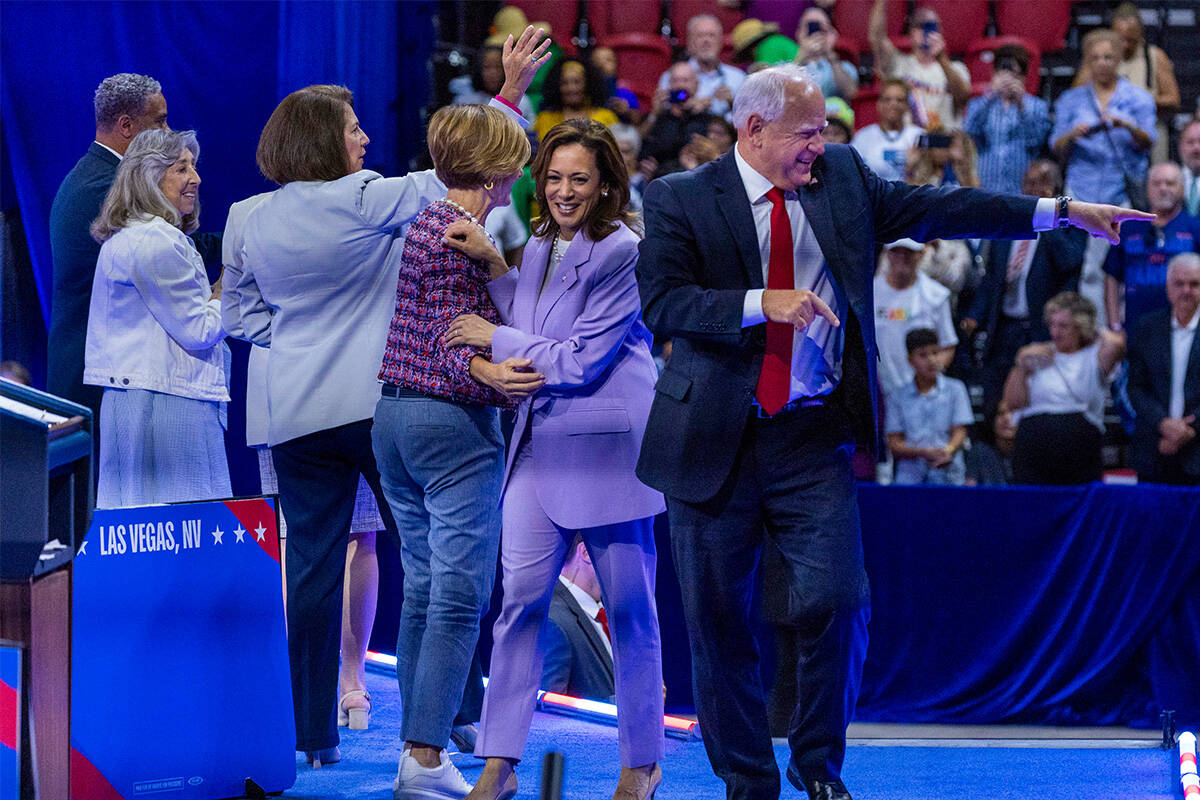EDITORIAL: Harris is giddy for federal price controls
Democrats open their national convention Monday in Chicago, the largest city in Illinois, a state that perfectly encapsulates the dangers of their progressive and collectivist agenda (see George Will’s column elsewhere on these pages). The details of that agenda remain murky, however, given that their presumptive presidential nominee, Kamala Harris, diligently avoids unscripted events and neatly runs away from her ultra-liberal record on a variety of issues.
The party has yet to even release its platform for the 2024 election. The Associated Press reported last week that a draft version of the platform, issued in early July, hasn’t been updated to reflect the decision to forcibly retire doddering President Joe Biden after one term. The preamble still reads, “President Biden, Vice President Harris and Democrats are running to finish the job.” Oops.
On Friday, Ms. Harris pulled back the curtain a tad — at least when it comes to economic policy. Her proposals weren’t encouraging and represent a laundry list of free stuff: She wants to magically wipe away medical debt, cap prescription drug costs, increase handouts to new homebuyers and provide $6,000 in direct taxpayer support to parents during the first year of each child’s life. This will cost the nation — as the debt hurtles toward $36 trillion — hundreds of billions of dollars a year.
Her marquee proposal, however, is right out of Venezuela and was long ago enshrined in the Bad Idea Hall of Fame. Ms. Harris also seeks to impose controls on the cost of groceries and food by threatening producers with federal penalties for “price-gouging.” This is pandering at its worst, and not just because it’s designed to address a problem — inflation — that the Harris-Biden administration itself created. Price controls don’t pass muster even with most liberal economists.
“The good case scenario is price gouging is a message, not a reality, and the bad case scenario is that this is a real proposal,” Jason Furman, who served as President Barack Obama’s top economist, told The Washington Post. “You’ll end up with bigger shortages, less supply and ultimately risk higher prices and worse outcomes for consumers if you try to enforce this in a real way, which I don’t know if they would or wouldn’t do.”
Luis Cabral, a professor of economics at New York University, agreed that the Harris proposal would create unintended consequences and potentially harm consumers. Mr. Cabral said “that while price controls might prevent sudden spikes,” Newsweek reported, “they could also lead to shortages or reduced supply. ‘When you short-circuit those price signals, you get bad market reactions.’”
The Harris-Biden economy has been marked by reasonable job growth — although much of that has been in the public sector — and low unemployment. But Americans have also been beset by persistently high prices triggered by the White House’s inflationary policies, high energy costs and soaring interest rates, leading to increasing default rates for credit card borrowers. The administration’s “economic record,” The Wall Street Journal noted Friday, “has left most Americans worse off than they were four years ago.”
Ms. Harris promises more of the same — and she’ll toss in destructive price controls for good measure. Ramping up the federal government’s interventions in the private economy will further distort the marketplace, encourage dependence over individual agency and erode national prosperity. Moderate voters should beware.






















